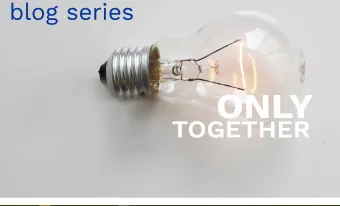#OnlyTogether can we overcome gendered barriers and finally realise a gender-equitable world

#OnlyTogether can we overcome gendered barriers and finally realise a gender-equitable world
The year 2020 marks not only the 25th anniversary of the GCSP, but also that of the Beijing Declaration and Platform for Action on women’s rights, and the 20th anniversary of United Nations (UN) Security Council Resolution 1325, which laid the foundations for the Women, Peace and Security (WPS) Agenda. With many relevant policies now in place, the call is to take concerted steps to put these policies into action. What are some of the barriers we need to overcome to finally realise a gender-equitable world?
Roadmaps for action
In 1995 the UN held the Fourth World Conference on Women, at which 189 countries adopted the Beijing Declaration and Platform for Action to advance the rights of women and girls. The principle that “women’s rights are human rights” was enshrined both in law and people’s hearts and minds, and 12 critical areas of concern and paths for action were identified, ranging from poverty, education and health care as they affect women and girls through to violence against women; the effects of armed conflict on women and girls; women’s access to/role in the economy, power, decision-making and the media; and their vital role in the preservation of the environment.
Five years later, after persistent civil society lobbying, the UN Security Council adopted Resolution 1325, which finally moved away from seeing women merely as victims of violent conflict and recognised their agency and right to participate in decision-making in the key areas of policymaking and peacemaking. It also sought to transform male-centred approaches to conflict prevention, protection, relief, and recovery and to affirm the roles and agency of women in these key areas.
Levers for change
Many are asking what needs to be done to accelerate action to make the goals of the WPS Agenda a reality. UN Women, France and Mexico have launched Generation Equality, which places a clear emphasis on the importance of youth engagement and empowerment in efforts to achieve gender equality, with two forums to be hosted in Mexico and Paris. Six Action Coalitions and the Global Compact for Women, Peace and Security and Humanitarian Action led by governments, international organisations, and civil society are gathering data and investing resources in critical areas. Multistakeholder action is essential.
There are also cross-cutting issues that extend to society more broadly and make it clear that we all need to come together to address structural gender-related inequalities. There are three areas where everyone in our global community can play a role.
Closing the power gap and shifting social norms
The glass ceiling remains largely in place in public and private organisations, limiting women’s access to positions of power and agency to drive change. In some countries, the legislative landscape still needs to be levelled to allow women equal rights, including inheritance rights and access to credit and education. However, even where laws and policies are in place, women face barriers created by attitudes, values and beliefs, and this is where we can all play a role.
The UNDP 2020 Human Development Perspectives document entitled Tackling Social Norms: A Game Changer for Gender Equality highlights that the care burden results in women globally undertaking an average of two-and-a-half times the care and household responsibilities as men, and that biased attitudes and beliefs reinforce outdated gendered roles and discriminatory practices.
To shift social norms we all – both men and women – need to play a role in sharing and showing care in both the home and the workplace.
Adopting a systemic approach to policymaking
As outlined in our first inclusive security policy brief, global risks are interconnected in a broad context that extends across the whole of human society. Yet within this interdependent system there are significant imbalances, ranging from growing inequality, marginalisation and exclusion to an overfocus on militarised security rather than human security and empowerment. The position and role of women in society is one of the key areas of such imbalances.
COVID-19 has highlighted the need for more differentiated responses to crises that affect the whole of society, with a particular focus on the needs of women and girls. The Lancet article “COVID-19 is not a pandemic” suggests that the term “syndemic” would more accurately capture the way in which “conditions are clustering within social groups according to patterns of inequality deeply embedded in our societies”. For example, a rising shadow pandemic of domestic violence exacerbated by the lockdowns imposed in response to the COVID-19 crisis has highlighted the need for us to apply a gender lens to policymaking, one that differentiates among the intersecting factors that make women and girls particularly vulnerable.
To see the complex whole and successfully tackle gender inequality we need experts from many disciplines to come together and recognise and value contributions in all parts of the system, including locally, nationally and internationally.
Recognising tensions and leading responses to them
Polarisation can be found in many spaces, including in the areas of women’s rights and gender equality. In the responses to the numerous crises we currently face, many tensions exist between those who seek the stability of current structures and those who are attempting to drive change; those who want to support women’s movements and those who are focusing on engaging male allies; and those who are seeking to reform military security mechanisms and those who are seeking to focus more on human security.
From polarity thinking we know that we need to shift our mindsets to see the resolution of these tensions in terms of “both – and” solutions, not outmoded “either – or” responses. And, ultimately, we will not make change alone – #OnlyTogether.
Fleur Heyworth is Head of the Gender and Inclusive Security Cluster at the GCSP, and also Head of the International Gender Champions Secretariat, which is being incubated in the GCSP’s Creative Spark.
ABOUT THIS BLOG SERIES:
As the world attempts to navigate yet another major disruption, we continue to look to one another to identify sustainable solutions and rebuild better. It is time for our world to take conscious steps towards unity and to work together so as to move beyond our preconceptions and challenge our stagnation. This #OnlyTogether blog series provides you with expert insights and the beginnings of a roadmap to a more peaceful and secure future. This blog series was launched to celebrate our 25th Anniversary, discover our 3-day event programme here.
Disclaimer: The views, information and opinions expressed in the written publications are the authors’ own and do not necessarily reflect those shared by the Geneva Centre for Security Policy or its employees. The GCSP is not responsible for and may not always verify the accuracy of the information contained in the written publications submitted by a writer.
Discover more about Gender and Inclusive Security at the GCSP.
Ms Fleur Heyworth leads the GCSP's executive education, dialogue and policy analysis on gender and inclusive security. Working closely with the GCSP's Leadership Alliance, she designs and facilitates courses on leadership for women, and for male and female leaders to create more inclusive working environments. She also delivers modules on gender and inclusive security to the multi-disciplinary, multi-cultural participants on GCSP's core courses, incorporating the frameworks of the Women Peace and Security Agenda, and the Sustainable Development Goals.
The GCSP is also an incubator for collaboration with academics and practitioners, diplomats, NGOs and businesses, enabling Fleur to work across sectors to identify tools and strategies to promote greater senior level representation of women, and more equality in society, the economy and politics. In August 2017 she worked with Dr Catherine Turner to publish a policy paper 'Women in Mediation: Connecting the Local and the Global'; she is currently working on nudge theory and the relationship between gendered leadership styles and security outcomes.
Fleur began her professional career as a Barrister and spent 5 years advocating in court, representing government and private clients in family law proceedings in England and Wales. In Geneva, she worked at the UK Mission to the UN where she represented the UK government in negotiations in International Humanitarian Law at the Red Cross Conference 2015, and on a range of thematic topics during three Human Rights Council sessions. She organised events on Preventing Sexual Violence in Conflict, Disasters and Emergencies, and on gender equality. She also worked with NGOs during UPR sessions and drafted recommendations to CEDAW. Fleur has a Geography Degree from Cambridge University, and took her post-graduate studies in law at Nottingham Law School.
Ms Heather McDonal is Young Leader in Foreign and Security Policy, Global Fellowship Initiative, GCSP. She is from Glasgow, Scotland and has a MA in International Relations from the University of Edinburgh and is soon to complete her International Masters degree in Security, Intelligence, and Strategic Studies with the University of Glasgow. She also runs the feminist media Instagram page @featuringfeminism and contributes to the political Instagram page @plainoldpolitics. Heather is a Young Leader fellow for the GCSP’s Gender and Inclusive Security Cluster with interests in masculinity, digital freedoms, and gender-based terrorism.

